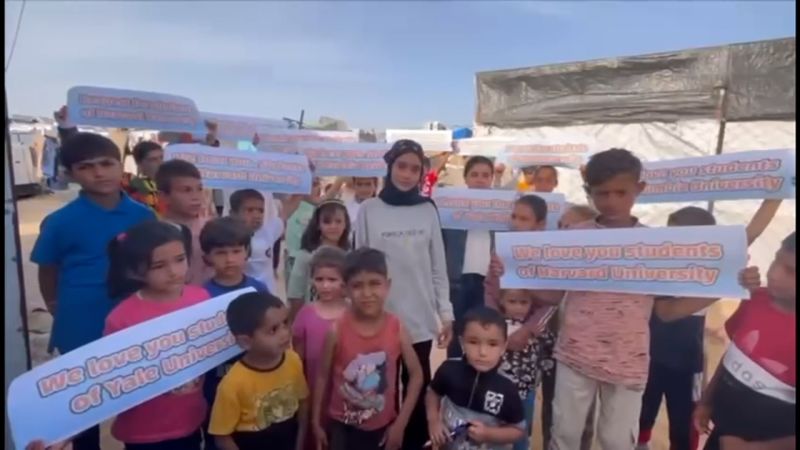As the swept-over waves of social change continue to influence the world beyond national borders, the quiet and often unheard voices from the heart of the Gazan territory have found an unexpected platform in the form of protests led by students at a U.S. university. Meanwhile, the response from Israel has been one of contention and controversy, calling for the students involved to be expelled.
Situated in the coastal strip located on the eastern Mediterranean Sea, the Gaza Strip has long been a hub of storied hardship, socio-political unrest, and resilience. The growing global awareness about Gazan’s living conditions has inspired a wave of solidarity from unexpected quarters – university students in the United States.
Across the U.S. university landscape, students took a bold stand, organizing and participating in peaceful demonstrations, expressing their disapproval of the living conditions and mistreatment of Gazans. Their actions reflected not only a versatile use of their democratic rights but also their determination to be global citizens, actively engaging in issues that transverse the conventional geographical boundaries. The power of their protests was in the earnest desire to stimulate conversation and change, invoking a moral obligation to challenge injustice and inequality wherever they persist.
The Gazans have enthusiastically showed their gratitude for such solidarity. Overwhelmed by the magnitude of attention and support they received, the Gazans conveyed an abundance of thanks via videos, social media posts, and heartfelt letters. Despite their dire circumstances, the spirit of the Gazan community has been amplified by this widespread show of unity, serving as a testament to their resolve and resilience. They used this opportunity to share their stories of strength and survival in hopes to not only educate the world on their living conditions but, more importantly, to inspire proactive actions that will eventually bring about peaceful resolutions.
However, the students’ benevolent actions have not been immune to criticism. There has been a significant backlash, primarily from Israeli authorities. They have adopted a stern position against the protests, citing them as disruptive and problematic. The authorities’ response has escalated to a call for the expulsion of the protesting students, linking their advocacy to accusations of anti-Semitic sentiments.
Such calls from the Israeli authorities sparked a debate about free speech and academic freedom. Critics argue that the expulsion call is an attempt to silence opposition and undermine the essence of democratic values. Additionally, they maintain that sympathy for Gazans and opposition to Israeli policies should not be automatically equated with anti-Semitism.
Decrying the conditions in the Gaza Strip does not necessarily indicate a disregard for Israel’s security concerns, but reflects a human recognition of Gazan’s suffering, backed by the belief that peaceful coexistence is achievable with fair policies. Proponents of this perspective consider the Israeli call for expulsion as an attack on the objectivity of academia.
Despite the controversy, the students remain undeterred in their pursuit of justice and equality. They maintain that their actions were driven by empathy and a desire to ensure fundamental human rights for all, regardless of their geographic location or political affiliation.
In essence, this situation showcases a clash between humanitarian empathy and political reality. It highlights the pivotal role international solidarity and free speech play in promoting awareness whilst inciting discourse on matters of global importance. The Gazan appreciation of the student protests underscores that even the smallest acts of solidarity can resonate powerfully, breaking boundaries, bridging divides, and ultimately strengthening shared human values of justice and equality.




